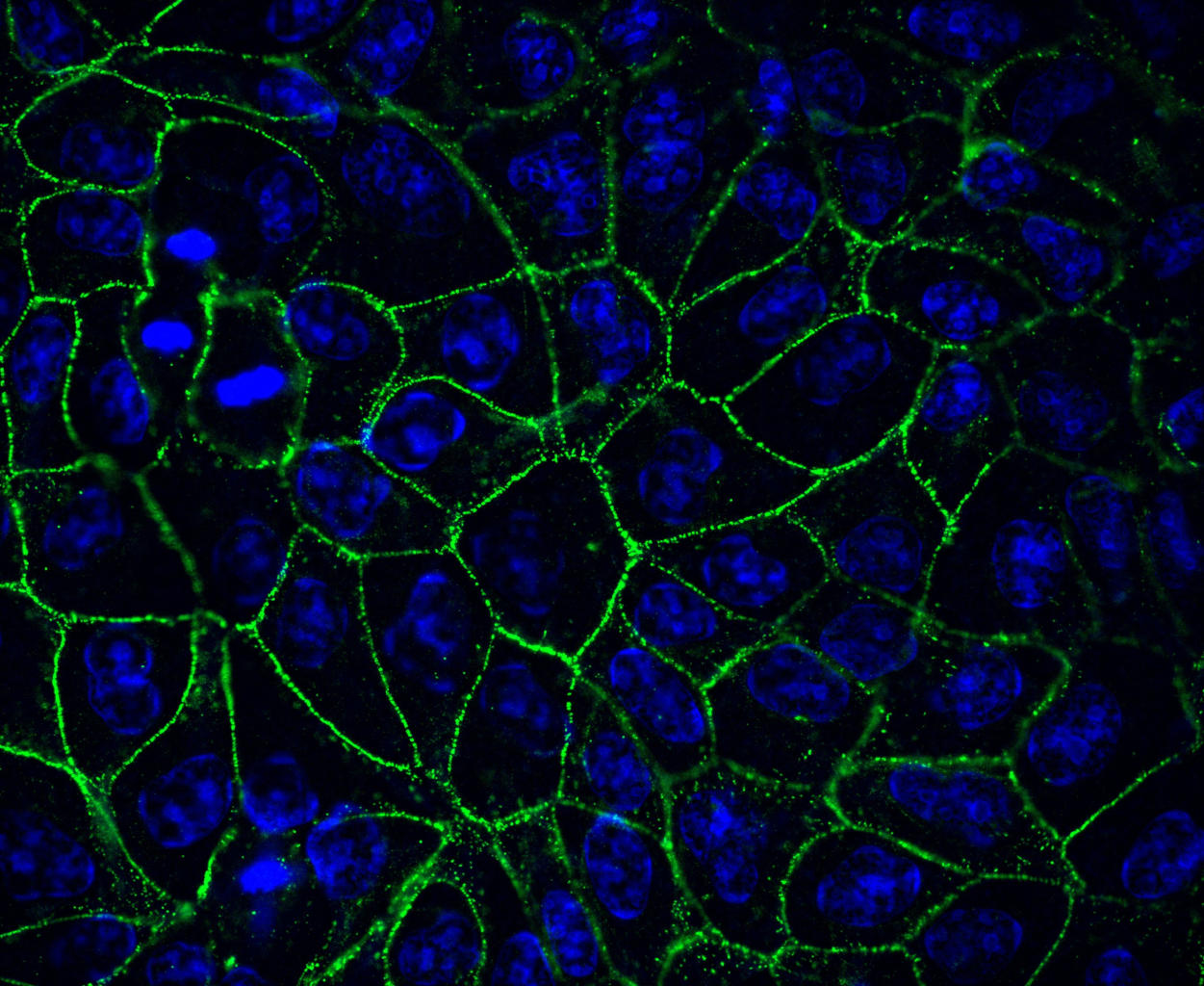What are desmosomes
Desmosomes are intercellular junctions that attach cells together to form functional tissues in vertebrates.
Being one of the strongest structural junctions, desmosomes provide vital mechanical integrity to tissues and organs.
Desmosomes form an intracellular network by attaching to intermediate filaments (IFs) in the cytoskeleton to provide adhesion and mechanical strength.
Due to constant exposure to mechanical stresses, organs such as the heart and skin rely greatly on desmosomes to provide adhesion and mechanical strength.
Besides supporting structural integrity, desmosomes also act as signalling molecules. Desmosomal components are involved in various signalling pathways that help regulate cell differentiation, proliferation, motility, and survival.
